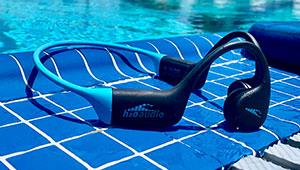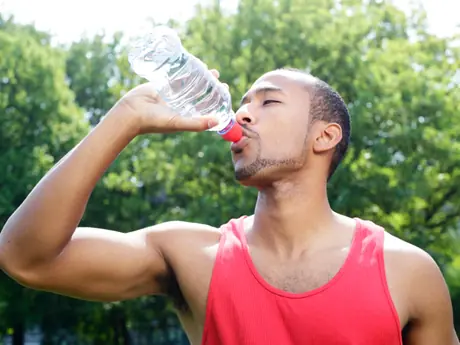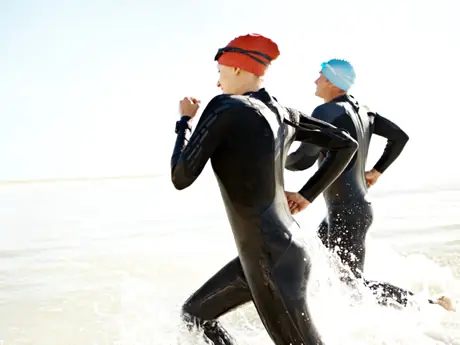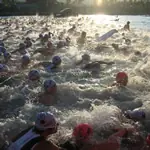
"Swim 2.4 miles! Bike 112 miles! Run 26.2 miles! Brag for the rest of your life!" -Commander John Collins, USN (1978)
Q: I've decided to try to tackle an Ironman and I'd like your input on choosing one for a first-timer and how to go about registering. I've heard it's sometimes difficult to register for Ironman events because registration opens first to the athletes volunteering or competing in that year's race. Do all the events typically sell out the day registration?
A: First off, Ironman and Ironman Triathlon are registered trademarks of the World Triathlon Corporation (WTC). Official Ironman races are either owned by WTC (Ironman Coeur d'Alene, Ironman Arizona) or pay money to have the Ironman brand affiliation with the race (Ironman Canada). Certain Ironman races offers qualifying spots to the Ironman World Championship in Kona, Hawaii held in October each year. The complete list of Ironman races can be found at ironman.com.
Registering for Ironman Events
It's true, some of the Ironman races sell out for the following year on the day registration opens—typically, the day after the current year's race. In general, the more established races like Ironman Canada and Ironman Lake Placid sell out immediately while newer races may eventually sell out but not on the first day of registration.
It's a good idea to know which race you intend to sign up for and be ready to commit at the time registration opens.
Long-Distance Triathlons
Non Ironman-branded events, sometimes referred to as "iron-distance", "full-distance" or "long-distance" triathlons are the same distance as Ironman events. They typically have a 2.4-mile swim, 112-mile bike and a 26.2-mile run—the distances of the Waikiki Rough Water Swim, the Around Oahu Bike Race and the Honolulu Marathon, which were combined to create the first Ironman in Hawaii in 1978.
Long-distance triathlons tend to offer a similar experience as Ironman events, and in some cases a more intimate and personal race day with a smaller field of athletes. Some popular long-distance triathlons include:- Vineman in Santa Rosa, California (July)
- Rev3 triathlon series, various dates and locations
- ChesapeakeMan in Cambridge, Maryland (September)
- Great Floridian in Clermont, Florida (October)
- Beach2Battleship in Wilmington, North Carolina (October)
When choosing your long-distance race, there are a few important factors to consider:
- Time of year: Will you do the majority of your long-distance training in the winter or in the summer? For example, if you sign up for a May race, you'll be doing long rides in February and March, which may not be bad if you live in Florida or California but winters may be a challenge if you live in Montana or Pennsylvania.
- Swim Start: Are you comfortable with a mass swim start with 2,000 or more athletes—the typical size for Ironman events? If not, consider a race with a wave start like Vineman.
- Race Size: Do you want to race on a crowded course or would prefer to race without worrying about large packs of other athletes?
- Course: Does the course play to your strengths? If you're a strong climber consider a hilly course like Ironman Lake Placid rather than the flat Ironman Florida.
- Locale: What else is near the race site? If bringing friends or family, are there other activities that they can enjoy while you're busy with registration, swim practice, etc?
- Training Partners: Do you have friends who are training for the same race or another race around the same period of time? It can be lonely doing all of your long rides and runs alone.
- Weather: What is the weather typically like where and when you will train versus where you will race? Ideally, they should be similar. If not, try to avoid extreme differences between the two.
- Budget: How far are you willing / able to travel? The more time zones you travel, the more money you will probably spend on travel and lodging costs...and the more time you should allow for your body to adjust.
Keep in mind that there are lots of races out there so pick the ones that best suit your interests, abilities and schedule.
Good luck and happy training!
 Sign up for an Ironman.
Sign up for an Ironman.Author of Full Time & Sub-Nine: Fitting Iron Distance Training into Everyday Life, David Glover is a certified USAT and USAC coach. He has completed 28 long-distance races, qualified for the Ironman World Championship in Kona, and achieved a personal best time of 8:51. David coaches everyone from first-time triathletes to experienced veterans qualifying for Kona. Please visit enduranceworks.net to learn how he can help you achieve your triathlon goals.
Get ACTIVE on the Go


Couch to 5K®
The best way to get new runners off the couch and across the finish line of their first 5K.
Available for iOS | Android








Discuss This Article